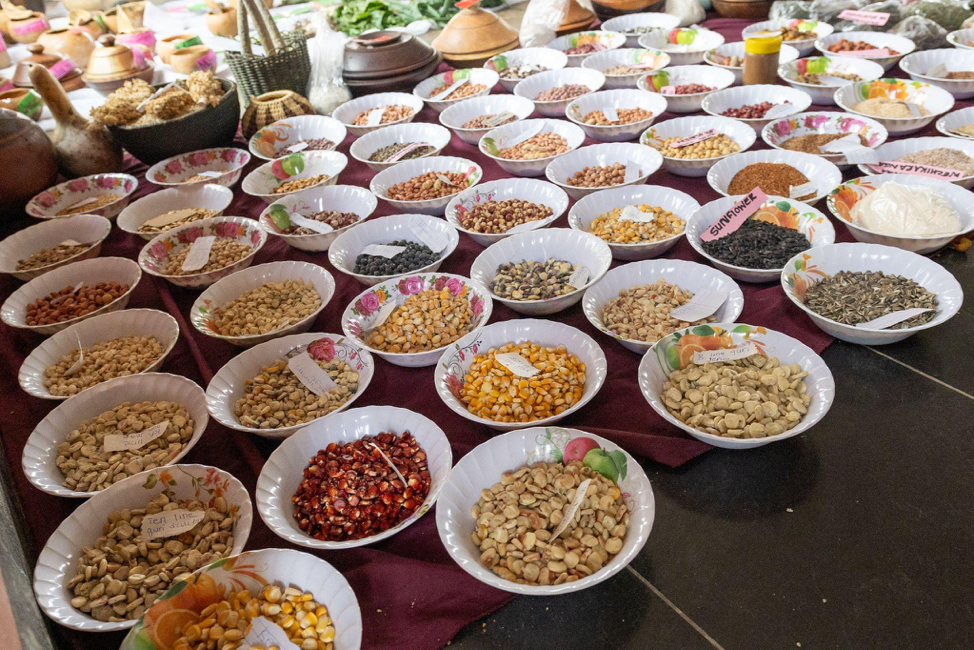
In the heart of Goromonzi District, Zimbabwe, a quiet revolution is growing, rooted not just in the soil, but in the seeds exchanged from hand to hand, farmer to farmer. At the center of this movement is the Goromonzi District Good Seed and Food Festival, a vibrant platform for smallholder farmers to connect, share indigenous knowledge, and most importantly, swap seeds that sustain both crops and communities.
Through this community centred exchange, farmers are reclaiming seed sovereignty, boosting food security, and strengthening local agricultural systems. The festival, supported by PELUM Zimbabwe and Fambidzanai Permaculture Centre (FPC), has become a vital meeting point for learning, collaboration, and empowerment.
One of its long-time participants, Wadzanai Munyari (55) from Choruwa Village in Ward 12 under Chief Kukwaka, has seen her life transformed through this shared tradition.
“I’ve been part of the Goromonzi Good Seed and Food Festival for years now,” says Wadzanai.
“Every year, I’ve received recognition as a top farmer, but the true reward has been the knowledge and seeds I’ve gained from fellow farmers,” she adds.
Wadzanai credits the festival for opening her eyes to sustainable farming techniques and the benefits of growing traditional grains which she says she learned after joining FPC. Applying these methods significantly improved her yields and her income.
“I have benefitted a lot from the festivals, especially in terms of seed. Long back we did not share seeds but because of the Good Seed and Food Festivals, every year we get to learn more about seeds, we get to share and exchange seeds and amongst ourselves as farmers,” she says.
At the heart of the seed festivals is knowledge exchange through seed dialogues, a safe space where farmers gather to discuss traditional techniques, climate resilient crops, and the importance of preserving indigenous seed varieties.
“These festivals allow us to share farming experiences, challenges, and solutions. It creates a strong support system among farmers. We don’t just trade seeds, we trade ideas, trust, and solidarity,” says Wadzanai.
Fellow farmer Joice Kaseke (45) echoes this sentiment, highlighting how the seed festivals have had a direct impact on community well-being.
“Since we began the District Good Seed and Food Festival, our community’s food security has significantly improved, leading to positive changes in our lives. Through these festivals, we have learned new farming techniques, allowing us to grow a more diverse range of crops. As farmers, we are now able to produce food that sustains our families throughout the entire year,” she says.
Spiwe Regina Padiwa (65), another farmer affiliated with Fambidzanai Permaculture, believes the festival has uplifted the voice of the farmer.
“The Good Seed and Food Festival has made us feel like our voices and our work matters as farmers. The festival has transformed our sense of identity and purpose. We no longer see ourselves as isolated farmers but we are part of a vibrant movement advocating for our rights and needs. Through the workshops and discussions that are done during the festivals we have gained practical skills and confidence to speak up for ourselves,” she says.
As farmers across Goromonzi continue to participate in seed swaps and community festivals, the ripple effects are evident. Stronger networks, better harvests, revived seed varieties, and empowered farmers. The act of sharing seeds, once a rare phenomenon, is now a cornerstone of resilience, knowledge, and unity.







